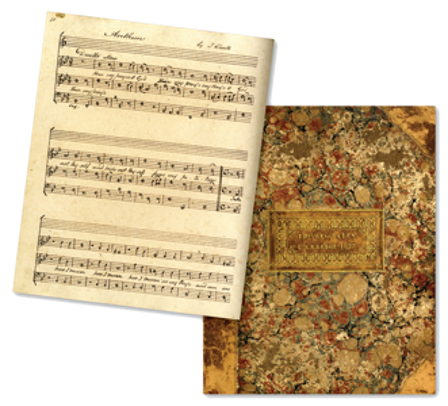Touching heaven
During the Middle Ages, England was home to a variety of musical styles - from monastic chant to folk songs and ballads. By the end of the 15th century, religious choral music had developed complex harmonies and instrumentation.

From 1559, Catholic worship was banned, with severe punishments for those breaking the new law. Byrd, himself a Catholic, lived in Harlington c1577/78, where he was accused of non-attendance of Anglican services.
Some have seen his work, with its images of captivity and deliverance, as symbolising the plight of Catholics at the time.
The popularity of hymns in church began with the works of John and Charles Wesley in the 18th century. An English Hymnal was produced in 1906. In modern times, local choral groups have included the Hillingdon Community Gospel Choir.
Instruments in church music from the mid-18th century included violins, cellos, flutes and bassoons. In the 1850s, a Baptist congregation in Uxbridge Market House met among straw bales, accompanied by clarinets and bass-viols.